
The car once more full to bursting, ready for the long drive south, and my companions either back at work or heading for the airport, I went to collect Nick from the hostel, ready for a morning in the hills. There were a few things I wanted to show him before he headed south himself and we began with a drive across the moors, following a spectacular little backroad we had stumbled across on our travels.

We were heading for the Derwent Dams. My sons had been fascinated by old aircraft in their childhood. We could all tell the sound of a Merlin engine…and every one of us would abandon the table when we heard that note that told us the Battle of Britain Memorial Flight was passing overhead. Lancasters were a favourite plane and it was inevitable that the Dambusters, 617 Squadron, would feature in the stories they learned.

Using the bouncing bombs invented by Barnes Wallis, the squadron had been sent on the now-controversial raid to the dams of the Ruhr valley. While there is neither glory nor heroism in war itself, the stories of the very young men who obeyed orders and served their country, laying down lives barely begun… that is a different matter.

The bombs, in order to be effective, had to be launched with great precision using the most rudimentary tools, aligning lights on the water to give them their mark. This meant flying low through narrow valleys, close to the water and in direct line of fire. One of the places they trained for the raid was the Derwent Valley. Their memorial stands within one of the towers of the dam and it is to here that we were heading. Fifty three of the 133 young men who participated in the attack were killed. So were 1600 people on the ground, of which a thousand were forced laboureres and prisoners.

The aircrew were boys. An average age of 21, with the youngest being Sgt Jack Liddell, a rear gunner and a mere 18 years old. He had already served for two years…he had lied about his age to join the forces. Lidell was killed during the raid. Leaving the wheelchair in the car, my own son and I stood in silence for a long time.

Lancaster over the Derwent Valley dam. Image from information board.
War is too easily glorified by those who wish to wage it. The cost of war is calculated and defence budgets prioritised; the true cost of war is not money. It is not just the lives of those who fight, not even just those who die or are maimed as the clinically labelled ‘collateral damage’. It is the cost in grief to those who wait and wonder, to those who survive but whose lives are shattered by fear, by PTSD, by uncertainty. Standing with my own son…a son I had so nearly lost to violence… there was a momentary glimpse of the weight of grief borne by those who have loved and waited. I too have waited, not knowing, though I could see my son and knew every breath and heartbeat the machines ensured. It is not the same, but it is enough to feel the wrongness of violence on any scale. The cost of war is life…. and humanity.

Wing Commander Guy Gibson and his crew. Imperial War Museums.


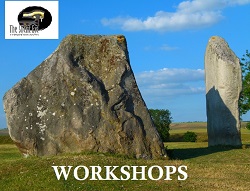






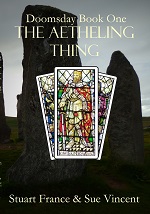
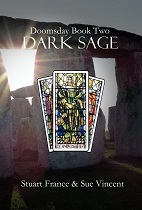








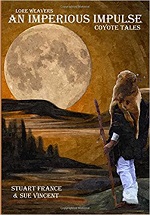


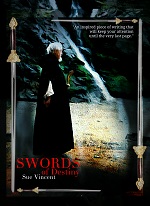








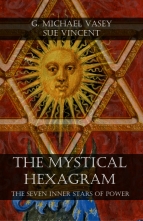

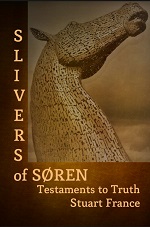


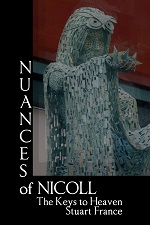




even more sadly collateral damage is costed: everything is costed, everyone is costed in CBA
LikeLike
What value life?
LikeLike
I did some transport evaluation work once where additional road deaths were in the equations by age cohort and nationality. people find it shocking but it is commonplace and part of teh requirements
LikeLike
I understand that, though the devaluing of life, in any form, saddens me. It should be treasured not squandered.
LikeLiked by 1 person
A very poignant post, Sue.
LikeLike
Standing at the dam with Nick really brought it hime, Richard.
LikeLiked by 1 person
I bet it did.
LikeLiked by 1 person
A beautiful post, Sue.
LikeLike
Thanks you, Robbie.
LikeLike
Reblogged this on Sun in Gemini.
LikeLiked by 1 person
Thanks, Steve. x
LikeLike
Pingback: The Derwent Valley | Sue Vincent’s Daily Echo | First Night History
War – The “wise” old men take advantage of the young man’s hero quest and the women are left to weep.
LikeLike
It has always been thus…though now too, the young women also fight…
LikeLiked by 1 person
yes, that is sadly true. I am writing later this week about women in the military to honor them for Memorial Day.
LikeLike
A beautiful tribute. My Father joined the RCAF at 17yrs. Eventually he was a rear gunner in a Lancaster: The Piccadilly Princess, Bluenose Squadron.
LikeLike
Thanks, Pam. It is hard to imagine the horror we put our children through in war….and 17 is still a child.
LikeLike
Lovely, poignant post, Sue. The cost of war is incalculable.
LikeLike
Only horror can measure it.
LikeLike
I agree war is such an awful thing, but the bravery of those young crew men and the perciverence of Barnes Wallis is something that I never tire of reading about. 💖
LikeLike
War impels so much pogress, both personal and technological…but it is always appalling.
LikeLiked by 1 person
Yes it is and it never ceases 💜
LikeLike
Oh, this is so sad! I couldn’t agree more, Sue!
LikeLiked by 1 person
Wonderful post, Sue. As America readies for Memorial Day, it is a pleasure to read about similarities with our allies across the ocean.
LikeLike
Humanity suffers in war, no matter where we come from.
LikeLiked by 1 person
Yes, Sue.
LikeLiked by 1 person
Those flyers were really so young. I think 18 is the youngest I’ve ever heard of. It’s amazing what we will do in the name of protecting our home and loved ones. It would be better if we could use the grief of war to REALLY try to stop more wars. Any year now.
LikeLike
Agreed, Marilyn…you would hope we might find a better solution one day…
LikeLike
Pingback: Writing 5/22/17 – Where Genres Collide
Marvelous post, Sue, one of your best.
LikeLike
Thanks, Rae.
LikeLiked by 1 person